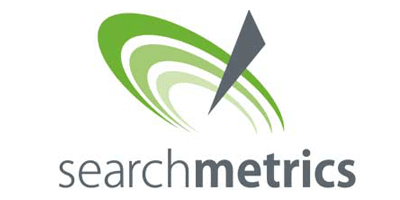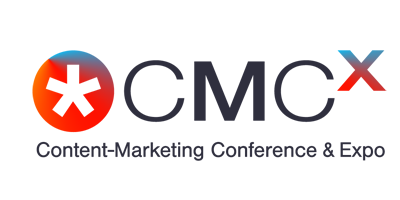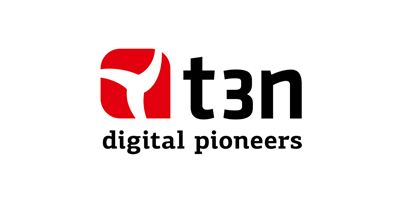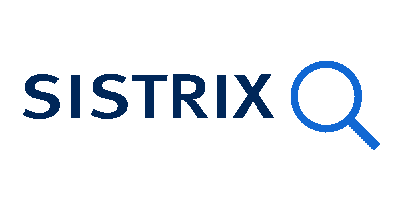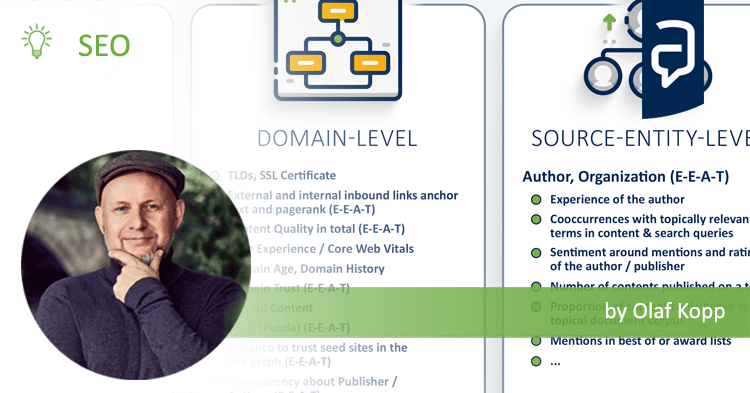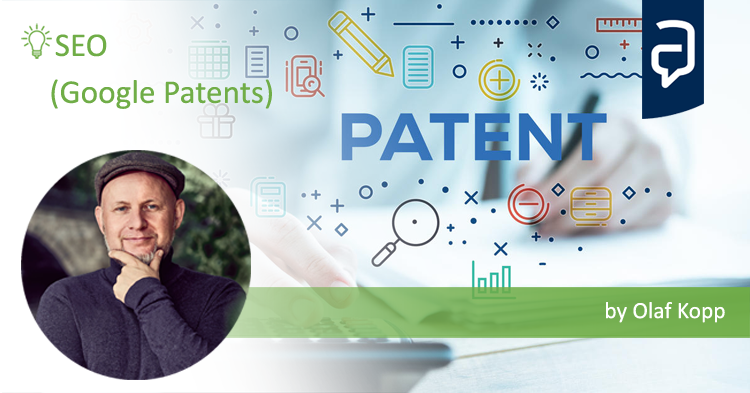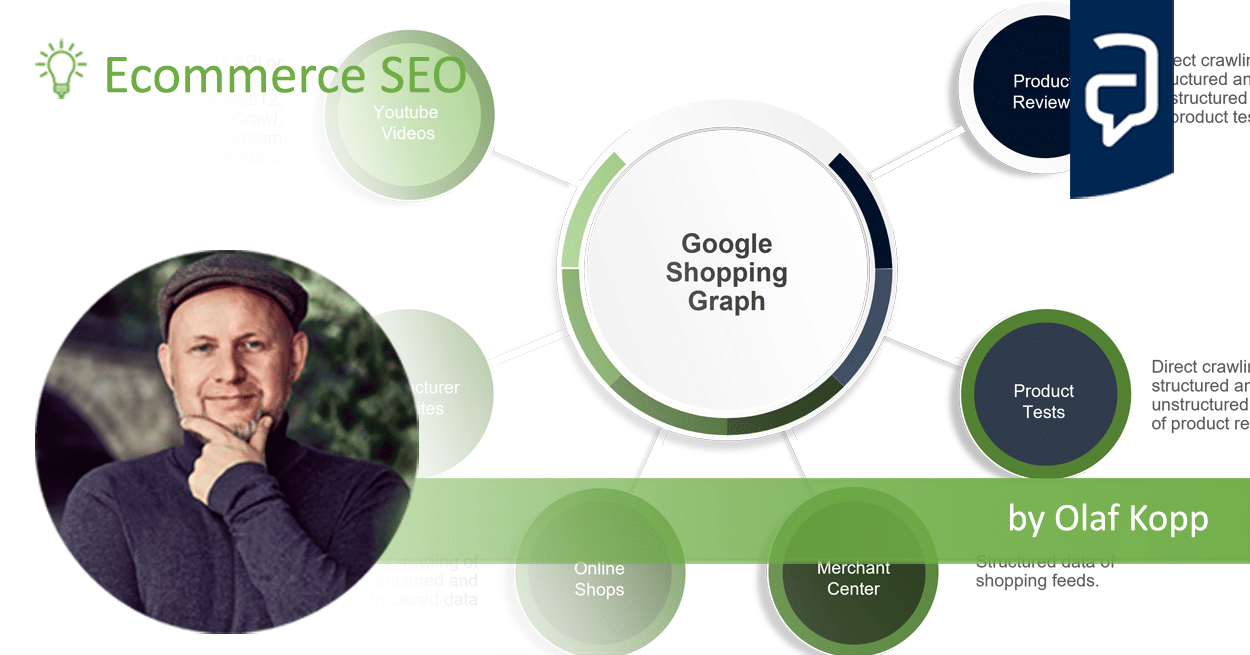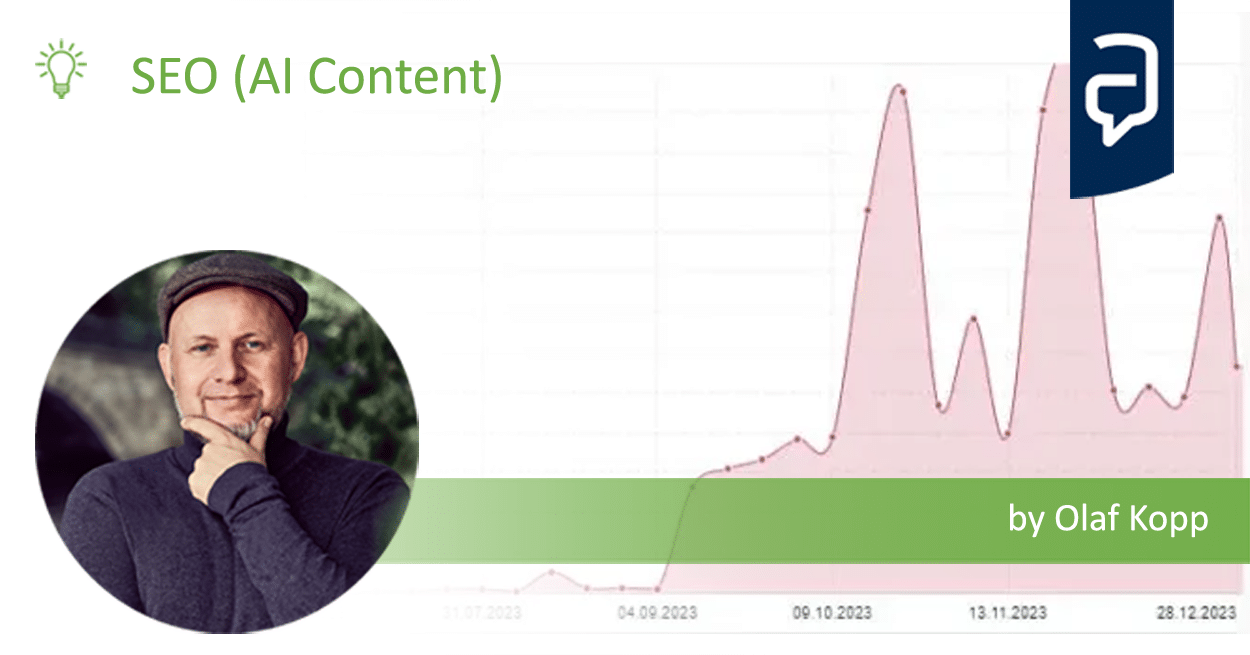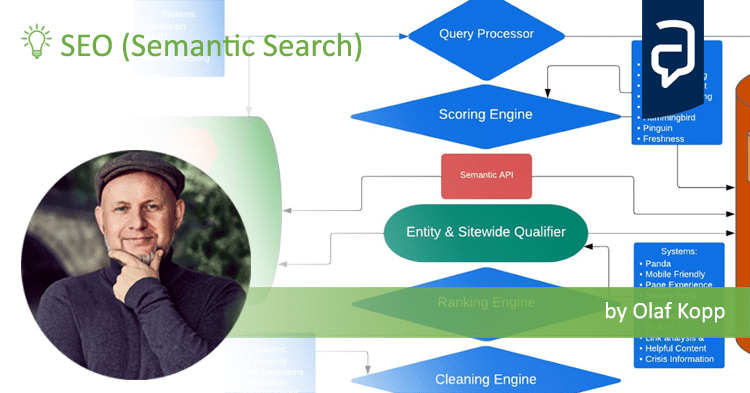“Google doesn’t like AI content!” Myth or truth?
Since the AI revolution, fueled by the development of large language models (LLMs) and generative applications such as ChatGPT, more and more SEOs and businesses are asking whether content created with AI can be found on Google or whether it will be devalued for ranking purposes. Opinions are divided: Many prominent SEOs believe that Google is taking proactive measures against AI-generated content with its recent updates. But does Google really care? Many of these opinions are based on ideology and fear for their own jobs.
Contents
What does Google say about AI content?
In the last 12 months, Google has expressed very different opinions on how to deal with AI-generated content in terms of ranking and guidelines.
In February 2023, for example, Google adjusted its guidelines regarding AI content and statements from Danny Sullivan, for example, were conciliatory:
“Our focus on the quality of content, rather than how content is produced, is a useful guide that has helped us deliver reliable, high quality results to users for years.”Source: Danny Sullivan and Chris Nelson of the Google Search Quality team
In April 2023, John Müller described AI content as spam.
Currently, Google seems to have dropped its critical stance on AI-generated content.

When it comes to ranking and serving AI content in search, Google doesn’t seem to have any concerns at the moment.
Why should they? Much of the content created for SEO purposes has always been created from curated information from the top search engine rankings. In other words, content that in many cases is also used to train language models.
The difference in quality between most previous “SEO copy” and AI-generated content is no longer that great.
Furthermore, Google would have to be able to actually recognize this difference algorithmically in order to differentiate between AI-generated and human-generated content.
Google vaguely mentions Spambrain as a possible system for recognizing AI content.
“We have several systems, including SpamBrain, that analyze patterns and signals to detect spam content, regardless of how it was created.”
At the same time, most data scientists and researchers are skeptical that systems can be developed that can detect AI content across all language models.
Tests with various AI detectors on the market also yield sobering results with a high error rate.
I don’t think Google is investing a lot of energy in AI content detection, as it would be tilting at windmills given the current rate of evolution of language models.
Google’s real challenge: crawling and indexing
AI is revolutionizing content production, especially in terms of speed and volume. Content of sufficient quality can be produced and published faster and in greater quantities. As a result, the number of online content and URLs will grow exponentially over the next few years.
Google’s biggest challenge is providing the resources to crawl and index this amount of content.
By way of background: When measuring the success of information retrieval systems, a distinction is made between precision and recall.
- Precision is the probability that a found result is relevant. It results from the proportion of relevant objects in the total result.
- Recall is the proportion of relevant hits in the total number of relevant results. Recall thus describes the completeness of a search result. The larger the data collection used, the more difficult it is to determine the total number of relevant objects.
It quickly becomes clear that the quality of search results is significantly affected by the exponentially increasing amount of AI content.
Since AI is already capable of generating objectively relevant content in large quantities, the objective relevance of content, e.g. due to the frequency of terms or the use of keywords in titles or headings, will play an increasingly minor role in the ranking. There will simply be too much objectively relevant content due to AI.
Alternatively, Google has the following additional options for determining ranking
- Content-specific re-ranking based on user behavior. Search results are re-ranked after the initial ranking using classic relevance signals based on user signals such as click-through rate in search results (SERP-CTR), bounce-back-to-SERP rate, time spent …
- Topical quality classification according to E-E-A-T (Experience-Expertise-Authoritativeness-Trust) of authors and domains.
Due to the sheer volume of future content, it is important from a resource perspective to decide before the ranking process which content should be crawled and indexed at all. To do this, classifiers must be in place to sort out content in order to conserve resources. At this point, classifiers similar or equal to E-E-A-T can play a role.
For these reasons, indexing will not be determined by how the content was created, but by how much trust Google has in the publishing source.
Can AI content rank on Google?
Let’s get back to practice. At Aufgesang, we have been conducting a long-term study on the rankability of more than 50 AI-generated content since summer 2022.
We are running two sets of tests on two different domains. Both domains have a history of several years and already established rankings.
Test series 1:
- Domain A
- Start: Summer 2022
- 30+ content largely created with AI
- LLMs: GPT-2 /Jasper.ai by December 2022 / GPT-3 + GPT 4 by today
Test series 2:
- Domain B2
- Start Summer 2023
- 20+ Content largely created with AI
- LLMs: GPT 4 to today
In test series 2, a complete directory was created using only AI content. The visibility progression of this directory shows that the AI content was indexed and in many cases also ranked.

Here are some example keywords in the ranking development:



Currently, the overall result of the two test series combined is as follows: Of the 50+ main keywords focused on, …
- 100 percent current rankings in the top 100.
- 64 percent current rankings in the top 20.
- 29 percent of current rankings in the top 10.
AI content can achieve top search engine rankings and generate organic traffic in the medium to long term. Our test series show this quite clearly.
We were even able to get featured snippet deliveries in the long tail.
Conclusion
I can understand if you are reluctant to accept the idea that “quickly created” AI content can rank, but at the moment you have to accept this fact. In my opinion, there is more hope than confidence that Google will do something about it.
Even if Google could do it with their own systems, the question remains why they would do it, or whether it would make sense from a user perspective.
Language models are getting better and better at creating relevant content. Be it text, images, audio or video.
This makes it all the more important to create content in such a way that users give positive engagement signals and improve or maintain the trustworthiness of the source (E-E-A-T).
More insights from our test series can be found in our webinar recording (in german):
- The dimensions of the Google ranking - 25. April 2024
- Interesting Google patents for search and SEO in 2024 - 3. April 2024
- What is the Google Shopping Graph and how does it work? - 27. February 2024
- “Google doesn’t like AI content!” Myth or truth? - 19. February 2024
- Most interesting Google Patents for semantic search - 12. February 2024
- How does Google search (ranking) may be working today - 4. February 2024
- Success factors for user centricity in companies - 28. January 2024
- Social media has become one of the most important gatekeepers for content - 28. January 2024
- E-E-A-T: Google ressources, patents and scientific papers - 24. January 2024
- Patents and research papers for deep learning & ranking by Marc Najork - 21. January 2024


